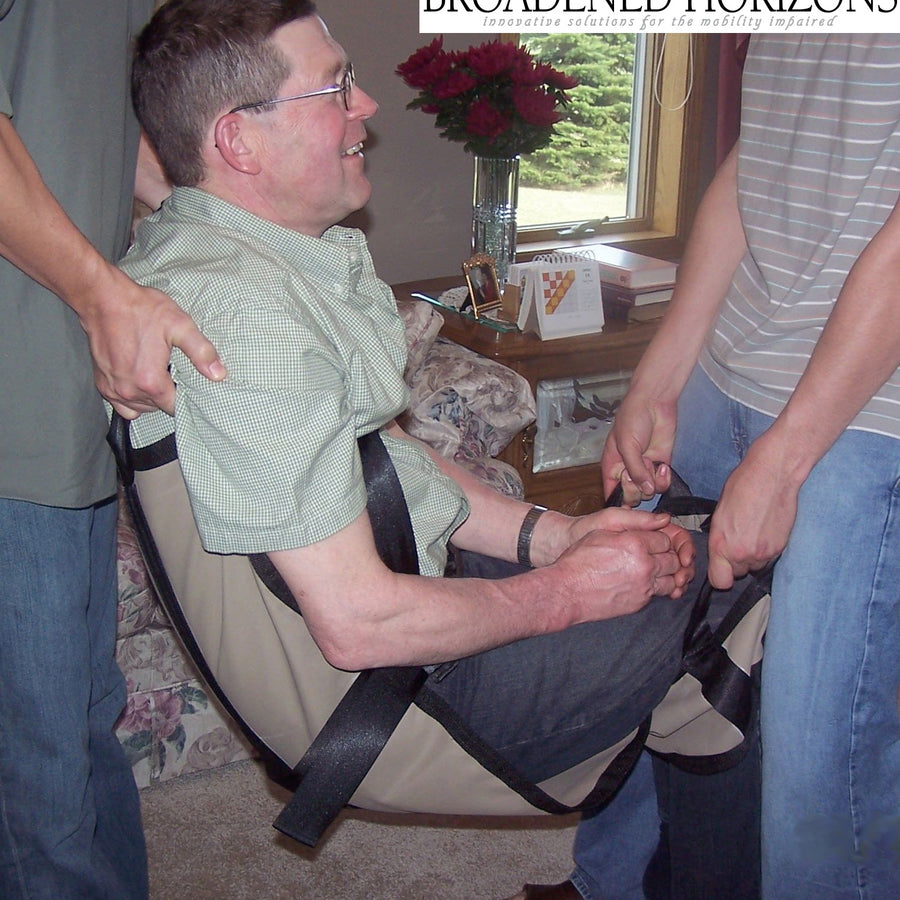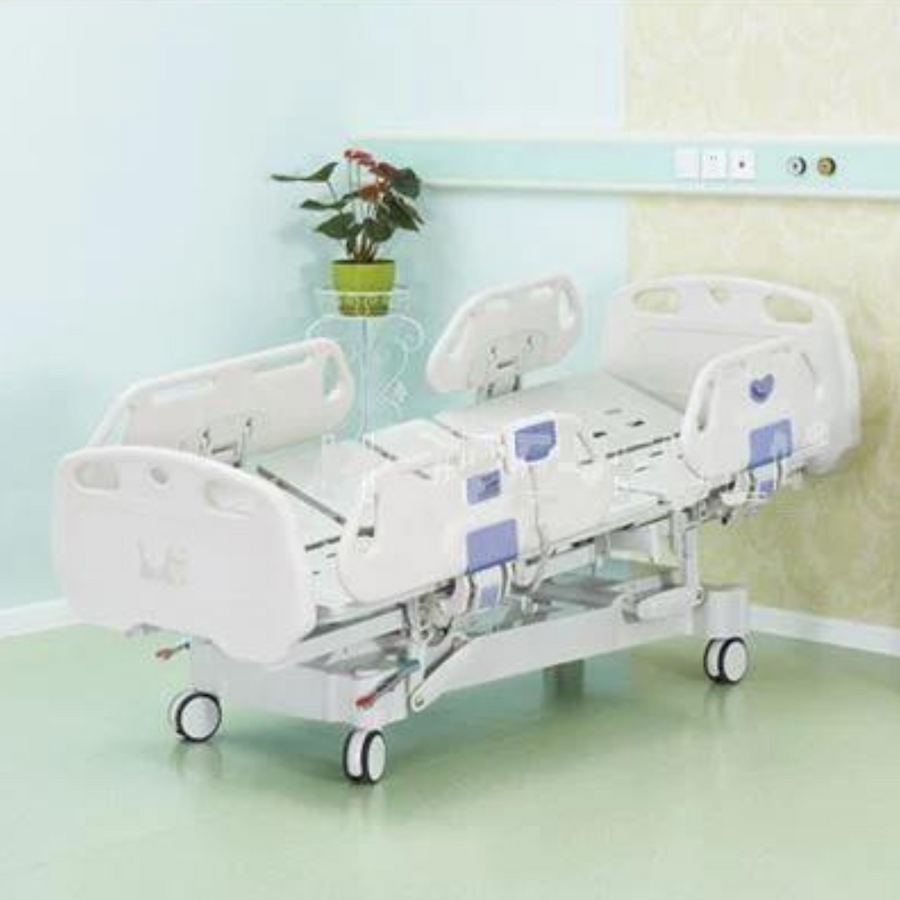International Orders - Our Products are Tax and Duty Exempt
Most* of Our Products are Tax and Duty Exempt
Internationally, almost all Inclusive Technologies sold by Inclusive Inc and all products manufactured by Broadened Horizons "specially designed for the education, employment and social advancement of blind, physically, or mentally handicapped persons are exempt from tax and duties including VAT, GST, HST in MOST countries. Specifically countries that signed The Nairobi Protocol to the Florence Agreement, adopted by UNESCO in November 1976
- We have no influence on your country's customs officials if they are not familiar with the exemption, or decide a product does not qualify.
- Customer is responsible for any import duties or taxes imposed by your nation. If you are charged such fees, ask about possible exemption status as you may qualify for a refund.
Harmonization Codes by Country (Incomplete)
| Country | Harmonization Code | Descriptions |
| United States | 9817.00.96 |
9817.00.96 Articles specially designed for the use of physically handicapped Articles specially designed or adapted for the use or benefit of the blind or physically handicapped persons |
| Canada | 9979.00.00 |
9979.00.00 Goods Specifically Designed to Assist Persons With Disabilities |
| United Kingdom |
9021.90 |
Goods Imported by Post By Plane - Customs Declaration C24 Individual / C25 Organization - goods specifically designed for use by people with disability (other than people who are blind or partially sighted) Pay no Customs Duty or VAT on goods for disabled people VAT Relief on Products and Services for Disabled People Eligibility Declaration by a Charity for VAT Reliefs for Disabled People If the package is not clearly marked, you must pay the duty and VAT. You can write to customs at the postal depot where the charges were raised. Appeal if you where charge import duty disagree with a decision. |
|
European Union (EU) Austria Belgium Denmark Finland France Germany Greece Ireland Italy Lithuania Luxembourg Netherlands Portugal Spain Sweden |
9021.90
(EU) No 1224/2011 |
9021.90 Tax / Duty Exempt Appliance to compensate for a defect or disability Appliances; worn, carried or implanted in the body, to compensate for a defect or disability ------------- (EU) No 1224/2011 - Tax / Duty Exempt Article specially designed for physically handicapped persons Articles specially designed for the education, employment or social advancement of blind persons or physically or mentally handicapped persons |
| Ireland |
9021.90 |
9021.90 Goods for people with disabilities: Exemption from import charges claimed |
| Malta | ||
| Australia | ||
| New Zealand | ||
| Oman | ||
| Barbados | ||
| Iraq | ||
| Chile | ||
| Hong Kong |
|
|
| India | ||
| Japan | ||
| Philippines | ||
| Republic of Korea | ||
| Russian Federation | ||
| Sri Lanka | ||
| Countries that voted in favor of 1976 United Nations Nairobi Protocol |
Afghanistan, Albania, Algeria, Angola, Argentina, Australia, Austria, Bahrain, Bangladesh Barbados, Belgium, Bénin, Bolivia, Brazil, Bulgaria, Burma, Burundi, Belarus, Canada, Central African Empire, Chad, Chile, China, Colombia, Congo, Costa Rica, Cuba, Cyprus, Czechoslovakia, Democratic Kampuchea, Democratic People's Republic of Korea, Yemen, Denmark, Dominican Republic, Ecuador, Egypt, El Salvador, Ethiopia, Fiji, Finland, France, Gabon, Gambia, Germany, Ghana, Greece, Grenada, Guatemala, Guinea, Guinea-Bissau, Guyana, Haiti, Honduras, Hungary, Iceland, India, Indonesia, Iran, Iraq, Ireland, Israël, Italy, Ivory Coast, Jamaica, Japan, Jordan, Kenya, Kuwait, Lao People's Democratic Republic, Lebanon, Lesotho, Libéria, Libyan Arab Republic, Luxembourg, Madagascar, Malawi, Malaysia, Mali, Malta, Mauritania, Mauritius, Mexico, Monaco, Mongolia, Morocco, Mozambique, Népal, Netherlands, New Zealand, Nicaragua, Niger, Nigeria, Norway, Oman, Pakistan, Panama, Papua New Guinea, Paraguay, Peru, Philippines, Poland, Portugal, Qatar, Republic of Korea, Romania, Rwanda, San Marino, Saudi Arabia, Senegal, Seychelles, Sierra Leone, Singapore, Viet Nam, Somalia, Spain, Sri Lanka, Sudan, Surinam, Sweden, Switzerland, Syrian Arab Republic, Thailand, Togo, Trinidad and Tobago, Tunisia, Turkey, Uganda, Ukraine, Union of Soviet Socialist Republics, United Arab Emirates, United Kingdom, Cameroon, Tanzania, United States of America, Upper Volta, Uruguay, Venezuela, Yemen, Yugoslavia, Zaire, Zambia, European Economic Community |
The Agreement on the Importation of Educational, Scientific and Cultural Materials, known as the Florence Agreement, is an international agreement drafted by the United Nations Educational, Scientific, and Cultural Organization (UNESCO), adopted by it in Florence, Italy, in July 1950 (17 UST 1835; TIAS 6129). It provides for duty-free treatment and the reduction of trade obstacles for imports of educational, scientific, and cultural materials in the interest of facilitating the international free flow of ideas and information. Materials falling within the coverage of the Florence Agreement include: books, publications and documents; works of art and collectors’ pieces of an educational, scientific or cultural character; visual and auditory materials of an educational, scientific or cultural character; scientific instruments and apparatus; and articles for the blind.
The Nairobi Protocol to the Florence Agreement, adopted by UNESCO in November 1976, broadened the scope of the Florence Agreement by removing some of its restrictions on articles otherwise entitled to duty-free status, and by expanding the Agreement to embrace technologically new articles and previously uncovered works of art, films, etc.
One major new category of articles is: “all materials specially designed for the education, employment and social advancement of other physically or mentally handicapped persons…” Protocol to the Agreement on the Importation of Educational, Scientific, and Cultural Materials annex E (ii), opened for signature March 1, 1977, 1976 U.S.T. LEXIS 388. Thus, the Protocol is intended to afford duty-free treatment not only for articles for the blind, but all other handicapped persons without regard to the source of their affliction.
Details for the United States
The 97th Congress passed Pub. L. 97446 to ratify the Nairobi Protocol in the United States. The Senate stated in its Report that one of the goals of this law was to benefit the handicapped and show U.S. support for the rights of the handicapped. The Senate, however, did state that it did not intend “that an insignificant adaptation would result in duty-free treatment for an entire relatively expensive article... the modification or adaptation must be significant so as to clearly render the article for use by handicapped persons.” S. Rep. No. 97-564, 97th Cong. 2nd Sess. (1982). The Senate was concerned that persons would misuse this tariff provision to avoid paying duties on expensive products.
Section 1121 of the Omnibus Trade and Competitiveness Act of 1988 (Pub. L. no. 100-418, 102 Stat. 1107) and Presidential Proclamation 5978 provided for the implementation of the Nairobi Protocol by inserting permanent provisions, subheadings 9817.00.92, 9817.00.94, and 9817.00.96 into the HTSUS. These tariff provisions specifically provide that “[a]rticles specially designed or adapted for the use or benefit of the blind or other physically or mentally handicapped persons” are eligible for duty-free treatment. U.S. Note 4(a), subchapter XVII, Chapter 98, HTSUS, states that, "the term ‘blind or other physically or mentally handicapped persons’ includes any person suffering from a permanent or chronic physical or mental impairment which substantially limits one or more major life activities, such as caring for one's self, performing manual tasks, walking, seeing, hearing, speaking, breathing, learning, or working.”
U.S. Note 4(b), subchapter XVII, Chapter 98, HTSUS, which establishes limits on classification of products in these subheadings, states that “Subheadings 9817.00.92, 9817.00.94 and 9817.00.96 do not cover (i) articles for acute or transient disability; (ii) spectacles, dentures, and cosmetic articles for individuals not substantially disabled; (iii) therapeutic and diagnostic articles; or (iv) medicine or drugs.”
³ Details for European Union (EU)
Articles specially designed for the education, employment or social advancement of blind persons or physically or mentally handicapped persons (Articles 66–73; Commission Implementing Regulation (EU) No 1224/2011 for the purposes of Articles 66 to 73 of Council Regulation (EC) No 1186/2009 setting up a Community system of reliefs from customs duty)
Articles specially designed for the educational, scientific or cultural advancement of blind persons, as specified in Annex III and Annex IV of the Regulation on reliefs from customs duty, shall be admitted free of import duties. Articles specially designed for the education, employment or social advancement of physically or mentally handicapped persons other than blind persons shall also be admitted free of import duties. The relief shall also apply to spare parts, components or accessories specifically for the articles in question, and to the tools to be used for the maintenance, checking, calibration or repair of the said articles, if the above-mentioned and other conditions concerning their relief are met.
Relief shall be granted only on condition that the goods are imported by blind persons or other handicapped persons or by institutions or organizations serving them. Imports by other institutions or organizations, or by other than blind or handicapped persons, relief is subject to an authorization granted by Customs.



